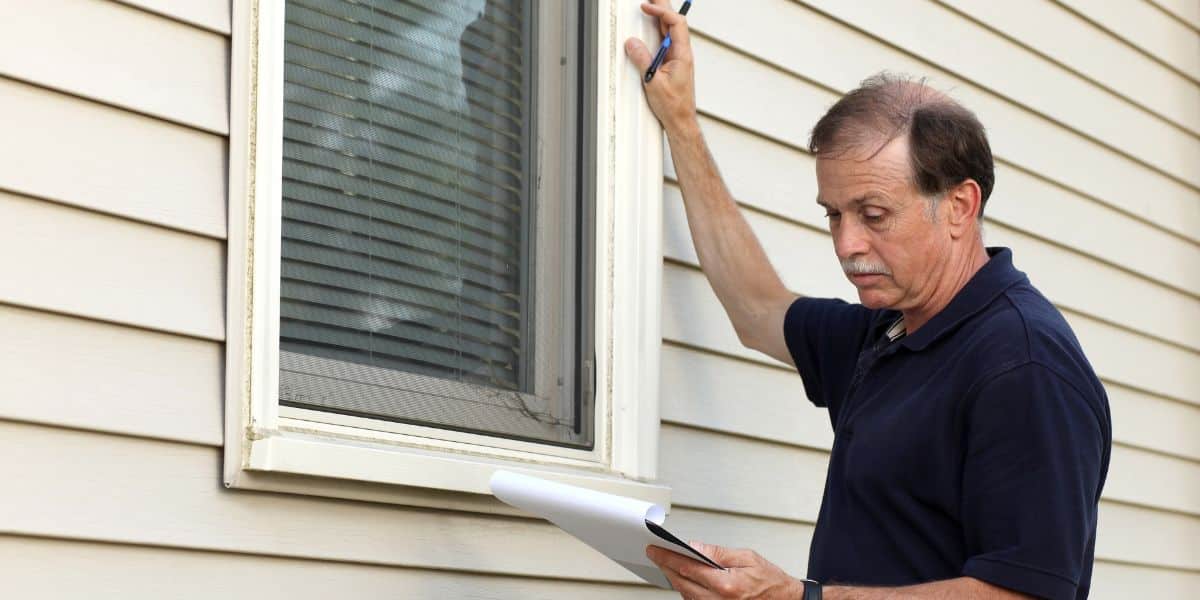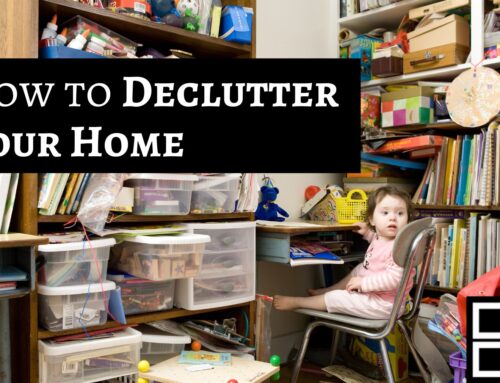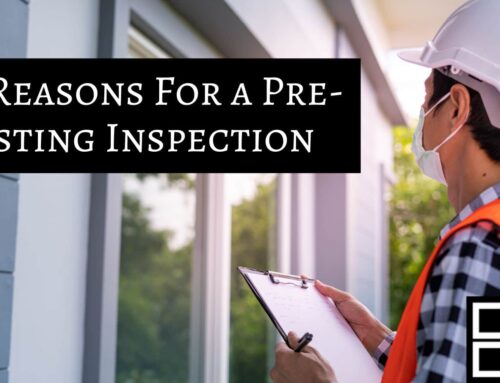16 Steps To Selling a Home
What are the steps to selling a house?
While most people would assume selling a home is an open and closed deal, that couldn’t be further from the truth. There is actually some very important real estate etiquette that could save you a lot of time and money. And there are several steps to selling your home that you may not have thought of yet. Here are the basics to get you started in the home selling process:
1. Hire a Listing Agent
Unless you are ready to sell your house by yourself, it is best to find a listing agent who is familiar with the local real estate market. While they may have many responsibilities, listing agents represent the seller in real estate transactions. This includes determining the best time to sell a home, creating the listing, placing it on the MLS, advertising the property and researching pricing using comparative markets analysis.
A listing agreement is required before your real estate agent can list your home for buyers to see. This agreement allows your agent to find a buyer for the home and details their commission.
Before you sign the contract, make sure that you have done your research and gotten referrals. Also, be sure to read reviews and interview the real estate agents you are considering.
2. Define your reasons for selling
Write down all the reasons you have for wanting to sell your home.
Ask yourself, “Why do I want to sell and what do I expect to accomplish with the sale?“
For example, a growing family may prompt your need for a larger home, or a job opportunity in another city may necessitate a move. For your goals, write down if you’d like to sell your house within a certain time frame or make a particular profit margin. Work with your Realtor to map out the best path to achieve your objectives and set a realistic time frame for selling the house.
3. Set a timeline for selling the house
Similar to buying a house, selling your home may not happen quickly either. Knowing the time it takes to sell your house can help you set realistic expectations and move the sale along as quickly as possible. These are the most important factors to consider:
- Time on the Market: The longer your house sits on the market without an offer, the longer the whole process will take. You may need to reconsider your selling strategy if your house has been on the market for too long without getting any offers.
- Current market conditions: A difference between a seller’s and buyer’s markets could make the difference between a long sales process or a quick turnaround. Sellers will need to compete with other homes to sell if the demand for homes is less than the supply. This could make it difficult to sell your house quickly.
- Asking for a price that’s too high: Buyers who think your home is too expensive will be reluctant to even view your home, let alone buy it. It is important to discuss a fair listing price with your real estate agent. If you aren’t getting any offers on your home, it might be worth going back to the drawing board to consider lowering the price.
- Low home appraisal: The home appraisal is used to determine the fair market value for a piece or real estate. A home appraisal that is lower than the agreed price can slow down or even stop the sale.

4. Get a home inspection
Although it is not mandatory, a pre-listing home inspection can prove to be a smart upfront investment. A home inspection report will help you identify structural and mechanical issues before you sell your house. Although it will cost you some money, you will know in advance any issues buyers might flag during their own inspection.
Sellers might be able speed up the sale by being a step ahead of the buyer and doing repairs along with other home preparation work. This way, the property is ready for sale by the time it hits the market.
5. Make necessary repairs and upgrades
Most of us don’t keep our homes in “showroom” condition. We tend to overlook piles of boxes in the garage, broken porch lights, and doors or windows that stick. It’s time to break out of that owner’s mindset and get your house in tip-top shape. The condition of your home will affect how quickly it sells and the price the buyer is willing to offer.
First impressions are the most important. Your real estate agent can help you take a fresh look at your home and suggest the updates that will give you the best ROI. This will welp get the house ready for potential buyers to walk through.
Here are some ways to get the ball rolling:
- Make minor repairs and replacements. Small defects, such as a leaky faucet, a torn screen or a worn doormat, can ruin the buyer’s first impression. Also, make sure all lights have bright, working light bulbs.
- Fresh paint can be an inexpensive project that substantially increases the “feels new” factor.
- Landscaping for a great first impression. Landscaping too can be a very affordable curb appeal project that leads to a better first impression for potential home buyers.
6. Stage the home
Real estate agents will often suggest that sellers stage their homes. Staging a home simply means removing excess furniture, personal belongings and unsightly items from the home while it’s on the market, and arranging rooms for optimal flow and purpose. If you’re in a slower market or you’re selling a luxury home, investing in a professional stager could help you stand out.
To get started with staging, try the following:
- A home with too much “personality” is harder to sell. Removing family photos, mementos and personalized decor will help buyers visualize the home as theirs. Many say to “remove everything with eyes”.
- Clutter is a big no-no when showing your home to potential buyers. Make sure you have removed all knick-knacks from your shelves and cleared all your bathroom and kitchen counters to make every area seem as spacious as possible.
- Arrange the furniture. Make sure to have the furniture arranged in whatever way that makes the area look most open. You could even eliminate a few unnecessary pieces, if the room looks like it needs to be decluttered.
7. Get professional photos
Your real estate agent can arrange for a photographer to take marketing photos of your house. It is crucial to have high-quality photos. This can make a difference in whether your listing sells quickly or languishes.
Many real estate agents include professional photography and virtual tours in their range of services. You might consider hiring a photographer on your own if they don’t offer these services. Professional photography fees will vary depending on the size and location of your property, as well as how long it takes to photograph the property.
Professional photographers with strong portfolios know how to make rooms look bigger, brighter, and more appealing. Your lawn and outdoor spaces are the same. Online photos that are poorly lit can put off potential homebuyers.
8. Decide on the listing price
Your next step in the home selling process should be to determine the best possible selling price for your house. Setting a fair asking price from the outset will generate the most activity from other real estate agents and buyers. You will need to take into account the condition of your home and what comparables in your neighborhood are selling for.
Also known as “comps,” comparables are records of recent homes that have sold and their sale price. It’s important that the comps you use as reference are of a similar size and condition as yours, and in a very similar area — the closer to your home, the better.
It’s often difficult to remain unbiased when putting a price on your home, so the expertise of your real estate agent is invaluable at this step. Your agent will know what comparable homes are selling for in your neighborhood and the average amount of time those homes were on the market. If you want a truly objective opinion about the price before you sell your home, you could have an appraisal done. This typically costs a few hundred dollars.
Studies show that homes priced higher than 3 percent over their market value take longer to sell. If your home sits on the market for too long, potential buyers may think there is something wrong with the property. Often, when this happens, the seller has to drop the price below market value to compete with newer, reasonably priced listings. So don’t be greedy. Choose a price that makes sense and is fair.

9. List the house for sale
Once your home is in top condition, it’s time to put it on the market and get buyers. This step is handled by the real estate agent or brokerage that represents you. Once your home has been shared on the Multiple Listing Service (MLS), which is a list of all homes currently being sold in the area, buyer’s agents can view it.
10. Market the property
The next step after your home has been ready for buyers is to get your listing in front of as many buyers as possible. Here are some tips to help you list your home.
Multiple channels are a good way to advertise. Home buyers today search online for listings and post signs in their front yards for open houses or for sale. Your listing will be seen more often, which means more potential buyers will find it.
Write a compelling listing description. Your listing description should highlight the best features of your home and the amenities buyers are looking for in your area. Include any amenities that are highly sought-after in your area, such as a rooftop deck or a backyard pool. Keep your listing brief and avoid using real estate jargon.
Quick property marketing checklist
- The Internet
- Yard signs
- Open houses
- Digital Marketing
- Social Media Marketing
- Agent-to-agent referrals
- Direct mail marketing campaigns
11. Prepare for showings
After all the hard work you’ve put into getting your house ready for buyers, make sure that you allow as many viewings as possible. This could be private tours, remote viewings, or open houses. Preparing for a showing is more than just a clean home. Make sure to keep track of all visitors and be sure they can leave feedback. Their insight can prove to be invaluable.
Make yourself scarce when potential buyers come to view the home. They need to be able to imagine themselves in the space and not have the distraction of meeting and talking to the owner. Seeing you lurking can cause buyers to be hesitant to express their honest opinions and could make them uncomfortable. It could keep them from really considering your home as an option.
12. Review any offers
Once your house is officially on the market, and potential buyers have seen it in person, you can expect the offers to start coming in. Your real estate agent is the best source of advice and support.
When you receive a written offer from a potential buyer, your real estate agent will first find out whether or not the individual is prequalified or preapproved to buy your home. If so, then you and your agent will review the proposed contract, taking care to understand what is required of both parties to execute the transaction.
The contract, though not limited to this list, should include the following:
- Legal description of the property
- Offer price
- Down payment
- Financing arrangements
- List of fees and who will pay them
- Deposit amount
- Home inspection rights and possible repair allowances
- Method of conveying the title and who will handle the closing
- Appliances and furnishings that will stay with the home
- Settlement date
- Contingencies
At this point, you have three options: accept the contract as is, accept it with changes (a counteroffer), or reject it. Remember: Once both parties have signed a written offer, the document becomes legally binding. If you have any questions or concerns, be certain to address them with your real estate agent right away.
13. Negotiate the deal
Most offers to purchase your home will require some negotiating to come to an agreement. Your Realtor is well versed in the intricacies of the contracts used in your area, interpreting the reports from a home inspection, and will protect your best interest throughout the process. Your agent also knows what each contract clause means, what you will net from the sale, and what areas are easiest to negotiate.
Many sellers find it easy to choose which offer they will accept. The home is usually sold to the highest bidder. There are other factors to consider, however, that you should not overlook.
- Do you have cash offers?
- Is the buyer applying for a loan?
- Do they have pre-approval?
- Are there any contingencies attached to the buyer’s offer? If so, what contingencies will they waive?
- Are the proposed negotiations of the buyer in line with your requirements?
These questions will help you be more prepared to accept the best offer and move towards closing.
14. Prepare for closing
Once you accept an offer to sell your house, the next step in the home-selling process is to make a list of all the things you and your buyer must do before closing. The property may need to be formally appraised, surveyed, inspected, or repaired. Your real estate agent can spearhead the effort and serve as your advocate when dealing with the buyer’s agent and service providers. Depending on the written contract, you may pay for all, some or none of these items. If each procedure returns acceptable results as defined by the contract, then the sale may continue.
If there are problems with the home, the terms set forth in the contract will dictate your next step. You or the buyer may decide to walk away, open a new round of negotiations or proceed to closing.
Important reminder: A few days before the closing, you will want to contact the entity that is closing the transaction and make sure the necessary documents will be ready to sign on the appropriate date. Also, begin to make arrangements for your upcoming move if you have not done so.

15. Move out of the house
You should budget for your moving expenses. Moving is costly and time-consuming, no matter where you are moving. A local move less than 100 miles requires two movers and a truck to transport it. The average hourly charge is $80-100. You can avoid costly surprises on your move day by taking steps to prepare.
Temporary housing might be an option if you are buying and selling simultaneously. This will allow you to not have to worry about timing the sale and purchase, which is rare.
16. Close the sale
With the rest of the process checked off, you’re ready for the final step – closing on the home. “Closing” refers to the meeting where ownership of the property is legally transferred to the buyer. Your real estate agent will be present during the closing to guide you through the process and make sure everything goes as planned.
By being present during the closing, he or she can mediate any last-minute issues that may arise. In some states, an attorney is required and you may wish to have one present.
The entire closing process has many steps and actually starts long before you sit down to sign the paperwork.
Here are a few tasks you’ll want to be aware of so you can complete the process.
Final walkthrough by buyer
A final walkthrough will be conducted by the buyer and their agent, several days before closing.
You will want to ensure that the house is in the same state as it was when the buyer first saw it and that any agreed-upon repairs have been completed.
Sign final documents
It usually takes between two and five days after the seller signs their closing documents before the sale of the home is finalized.
These are the items you will need to have with you when you sign the paperwork.
- Valid, government-issued photo ID
- Banking information, If you want your proceeds wired
In some states, an attorney is required during closing. So, you may need a real estate attorney to review the closing documents.
Prepare for closing
These are some things that you should do before the sale is over.
- Take all personal items out of the home
- Get utilities taken out of your name
- Cancel your homeowner’s insurance
- Change your mailing address
Make the sale official
Once the deed has been recorded and ownership transferred, the sale of your home is final. Soon after, you can expect to receive your proceeds.
There are two ways to get your money from the Escrow Company:
- Cashier’s Check
- Wire transfer
Find out why you should list your home with Heather Murphy Real Estate Group.

Selling a House FAQs
Selling a house is a complicated process. There are many things to consider. Let’s look at some of the most common questions.
Q. What is the cost of selling a house?
A. There are many expenses that you need to be aware of when you sell your house. Selling a house can cost a lot of money. These include closing costs, mortgage balance, real estate commission, pre-inspections, cleaning, and moving. To ensure that you make a profit, it is important to know how long you should stay in your home before you sell.
Q. Can you sell a house with a mortgage?
A. If you have an existing mortgage, you can still sell your home. The sale proceeds can be used to pay your mortgage balance or any closing costs. Be sure to verify with your lender about any prepayment penalties.
Q. What happens to my money when I sell my house?
A. The cost of selling your house can be expensive. However, you can use the proceeds to pay any closing expenses, repairs, real estate commissions, and your mortgage balance.
Q. What is the average time it takes to sell a house?
A. It takes time to sell a house. The actual time can vary wildly, depending on the market status, the length of time the house has been listed on the market, the asking prices, and the location.
Q. Can I sell my home without a realtor?
A. You can sell your property without the help of a realtor. However, a listing that is “For Sale By Owner (FSBO), comes with many responsibilities. While you may not have to pay real estate commissions to a listing agent, you might still be required to pay the buyer’s agency commission. You will be responsible for all marketing and the transaction. Many home sellers find that working with a Realtor, for a smoother selling experience, is worth it. Plus the average sales price of a home represented by a Realtor is higher than that of a FSBO.









